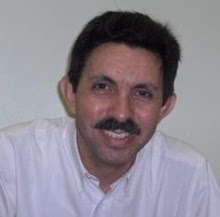Math, Belief and Hope
I left some loose ends in my previous post, so before I start discussing negotiation let me start clarifying some issues regarding my previous post. Negotiation will be the next topic. I promise.
My post on conflict and hope may lead many to believe that my hope is based on some simplistic argument: some equilibrium points in Game Theory and based on an old paper, written even before I was born. I invite those thinking that way to read Nash’s paper and tell me if the argument is simplistic. Others may criticize me as a crude reductionist, trying to explain complex human behavior using a mathematical model. As I said in my post, there are concepts that need to be defined further for the model. The payoff is one and, as I also said, we would have to find ways to include non-quantifiable variables in conflict. Someone could ask how to put moral principles as part of the payoff. To that I say principles are not negotiable. Another issue is related to rationality, but rationality in this case does not refer to reason or to the quality of reasoning, but, as I also said, rationality is based on utility theory, i.e. maximizing a payoff. How good could then be the model? To answer to this question I will summarize two experiments.
I found them in a book I’m currently reading: A Beautiful Math (Siegfried, Tom. A Beautiful Math. Joseph Henry Press. Washington, D. C. 2006.). In the first experiment, the biologist David Harper at the University of Cambridge fed a flock of 33 ducks in two separate patches of a pond at the university’s botanical garden. The strategy was to toss precisely weighted pieces of white bread. In one of the patches the feeder would toss one piece of bread every five seconds. In the other patch the feeder would toss one piece every 10 seconds. According to the author, ducks took about a minute to organize in two groups, approximately two thirds of them where bread was being tossed every five seconds and the rest, where bread was being tossed every 10 seconds. What this shows is not that the ducks know math but that they naturally organize themselves to maximize their food intake, their payoff.
The second is based on the work of another heavy-weight scientist: John Maynard Smith. He invented a simple animal-fighting game between hawks and doves. In this theoretical experiment Maynard Smith showed that one single strategy for the two types of birds would not produce a stable population, hawks aggressively and doves passively. The two types of birds in this theoretical experiment need to combine their strategies, doves sometimes behaving like hawks and vice versa, to become an “evolutionary stable strategy”. If hawks always fight for food, they’ll kill each other to extinction while food is wasted away. On the other hand, if doves never compete they will starve to extinction running away from any bird, including other doves. Of course, this is a theoretical experiment but shows clearly why a mixed strategy is necessary. A similar example I give my students when speaking of distributed intelligent agents. In my example, two or more collaborative agents will never go through a door because their courtesy yields to giving way to each other. On the opposite end, two competing agents will never go through the door fighting to get through first. This example also shows that mixed strategies work better than single strategies. Thus, Maynard Smith postulates that in evolution theory fitness should be replaced by utility and selection by rationality in the sense of game theory.
These examples show that the concept of rationality in game theory does not relate to reasoning but to maximizing payoff. The examples also suggest that the competing parties do not necessarily carry out mathematical computations, but that rationality is imprinted in evolution. To alleviate partially the dilemma nature versus nurture that may arise from this last statement, let me just say that the plasticity of the nervous system is a result of evolution but how this plasticity develops, is related to nurture: environment, education, culture, etc. A similar statement could be said of other systems in living organisms.
The next issue that may arise is how one construes hope from such an abstract mathematical expression. I would reply that some people found their hope in abstract expressions like the pursuit of happiness, achieving enlightenment or perfection or loving each other, including one’s enemies. I mean not to compare the moral or practical valor of these statements but only how abstract they all are. My point here is that I can ground hope, at least partially, in that conflict may turn positive and there are solutions where everybody can win. The problem paradoxically lies on finding rationality, when human reasoning is involved. My response is through principled negotiation but, as I said, this will be the topic of my next post.

